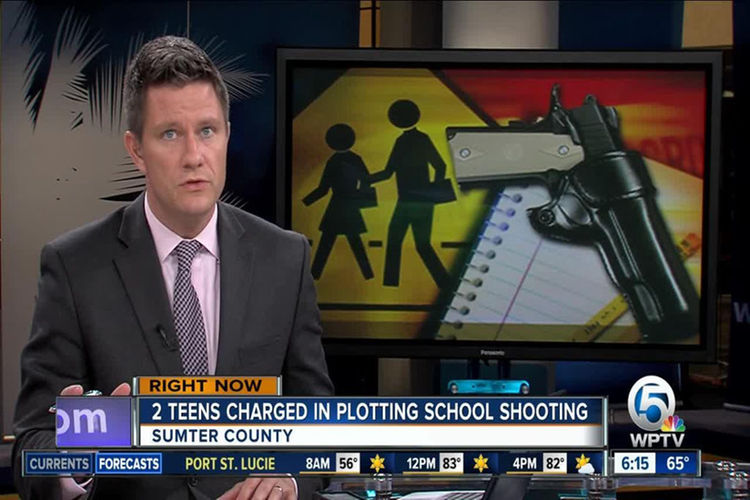Reid, Ensign vote opposite

WASHINGTON — President Bush called Sen. John Ensign three times in the past week urging him to support his immigration reform bill. On their final conversation, the Nevadan told the president the bill was fatally flawed and he planned to vote against it.
“I wanted to vote for a comprehensive immigration bill good for the country,” Ensign, R-Nev., said Thursday morning, but that was not the one.
A few minutes later, Sen. Harry Reid, D-Nev., contemplated the ring he wears on his left hand and the watch farther up his sleeve. Both were given to him by his late father-in law, Russian immigrant Israel Goldfarb whose name was Americanized to Earl Gould.
“My family has been enriched by immigration,” Reid said.
The Nevadans then cast one of the most significant votes of Congress this year. They split, with Reid voting aye and Ensign voting nay.
The nays prevailed Thursday, blocking the bill on a 46-53 vote and probably shelving efforts to reform the system until after the 2008 election.
“I am very disappointed that we weren’t able to pass this legislation,” Reid said.
“I hope we can get a better bill, but we don’t know,” Ensign said.
Throughout the debate, the Nevada senators personified the clashing views on whether legislation formed by a bipartisan group of senators and the White House would solve immigration problems.
Reid said the bill was not perfect but was a solid step toward securing the nation’s borders, providing guest workers for U.S. industry and resolving the futures of 12 million people already in the country illegally.
“This problem is not going to go away,” Reid said. “This legislation was a tremendous step in the right direction.”
Ensign differed. He said the bill would only encourage immigrants to cheat to stay in the country and lacked ways to make sure they went back home when they were supposed to.
It amounted to “amnesty,” he said.
In Nevada, people with a closer view of the immigration system and the roughly 200,000 illegal residents in the state expressed disappointment at the bill’s collapse.
“People have been very sad calling in. Everybody was down. We haven’t recuperated from what happened,” said Xavier Rivas, host of the Spanish-language radio show “Lo de aqui …. Lo de alla” — “Here and There” — on KRLV-AM, 1340.
“I am telling people don’t be sad, don’t be angry, just act,” Rivas said.
Leaders of the Las Vegas Latin Chamber of Commerce said they will redouble their efforts to register Hispanic voters and pressure politicians to act on immigration.
“We have 13 (million) or 14 million people who are here in darkness,” chamber President Otto Merida said. “They are working. Our employers want them to work, but they are undocumented, and they don’t have any rights.”
The bill in the Senate wasn’t perfect, but its death represented an opportunity squandered, chamber board Chairman Robert Gomez said. “We’ve got to get everyone to the table to start working on a bill that will work,” he said. “The big failure here is that there’s nothing on the table now.”
The nonpartisan chamber is one of Southern Nevada’s most politically involved Hispanic groups.
Chamber members praised both Reid and Bush for their efforts. As business people, they understand the importance of the immigrant work force, while as Hispanics, they are concerned about undocumented workers’ situations.
“Businesses would crumble if all these immigrants were sent home, as some people advocate,” chamber board member Alma Garcia Vining said.
With the immigration bill dead in the Senate, House leaders are unlikely to take up the issue, said Rep. Shelley Berkley, D-Nev. “Without any compromise, the situation is going to get worse,” she said.
Reps. Dean Heller and Jon Porter, both R-Nev., welcomed the bill’s failure, saying it was too lenient.
“I am deeply opposed to amnesty and it is clear that the majority of Nevadans and Americans are also opposed to rewarding those who have entered our country illegally,” Heller said in a statement.
Geremia Veglia, a sociology professor at the University of Nevada, Las Vegas who studies immigrants, said the strong opposition to the bill illustrates that many Americans view undocumented workers as a wave of “invasion.”
“This is becoming an emotional powder keg and any time people start using emotion to guide their mind, we know what happens: Things go boom,” he said.
Supporters of the bill underestimated public sentiment, said Eric Herzik, a University of Nevada, Reno political science professor.
Despite sponsors stressing the bill contained $4.4 billion for border security, Herzik said, they were not able to neutralize critics.
“In terms of public perception, it is still being seen as an amnesty bill,” he said.
“As far as the intensity level and the passions on this bill, we have never seen anything like it” in terms of calls and letters, Ensign acknowledged. “It is not even close to anything you could say was in second place.”
Review-Journal writers Molly Ball and Lynnette Curtis contributed to this report.












